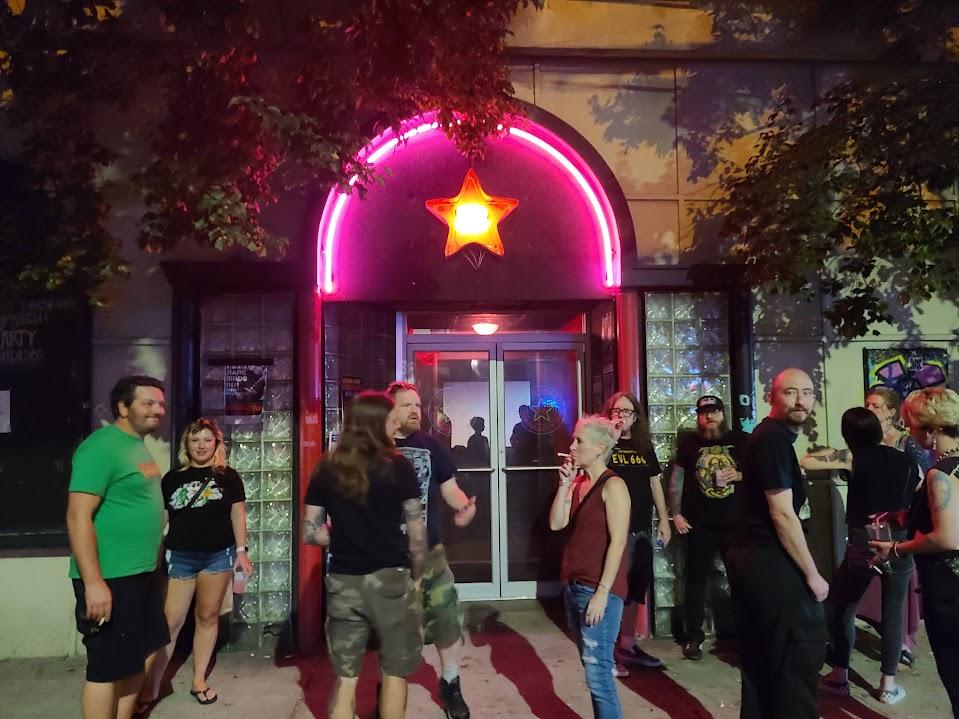
Caption
The Star Community Bar is a locally owned bar in Atlanta's Little Five Points neighborhood, one of the nine nightlife hotspots identified in the report.
Credit: Amanda Andrews / GPB News
LISTEN: Atlanta bars and restaurants are still recovering from pandemic-related customer loss and facing rising expenses. But the city is organizing to address challenges for customers and business owners as the industry grows. GPB’s Amanda Andrews explains.

The Star Community Bar is a locally owned bar in Atlanta's Little Five Points neighborhood, one of the nine nightlife hotspots identified in the report.
The Mayor’s Office of Film, Entertainment, and Nightlife released a report detailing the economic impact of Atlanta’s nightlife industry and strategies to support business and consumers moving forward.
The study surveyed over 500 business owners and customers of Atlanta’s nightlife establishments. It found that the industry generated $5.1 billion in revenue in 2024 and supported over 40,000 jobs.
Consumers surveyed say they'd like to see more free nighttime events, locally owned businesses, and restaurants open past 10pm.
Atlanta’s nightlife economy is split into three main categories: restaurants, bars or nightclubs, and performing arts venues. Researchers found that, overall, nightlife establishments are continuing to recover from customer loss and rising expenses caused by the COVID-19 pandemic.
Nearly 60% of businesses report that customer traffic has not returned to pre-pandemic levels with customers citing transportation and safety as key concerns.
Atlanta Mayor Andre Dickens said his administration’s nightlife division is leading efforts to address those concerns.
“It has played a key role in non-policing efforts to bring our crime rates down over the past three years through outreach and quarterly events like Training Day," Dickens said. "We are dedicated to implementing smart strategies to preserve and enhance the vibrancy and safety of our nightlife industry, so it remains a cornerstone of Atlanta’s cultural and economic framework."
The report includes recommendations for changes on security, transportation, and economic resilience. Strategies include discounted parking for workers, more pedestrian infrastructure, creating hubs of concentrated late-night activities, and business grants to improve safety features.